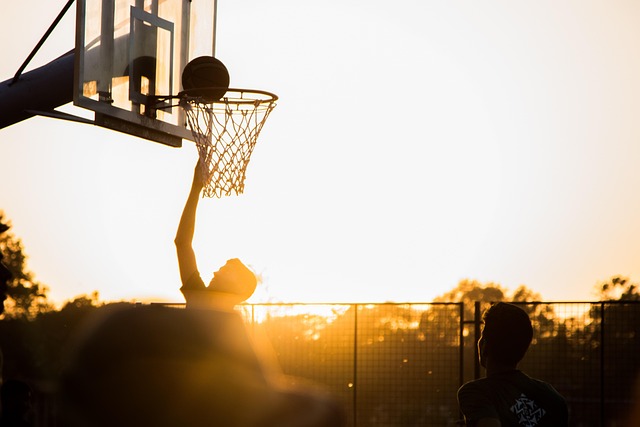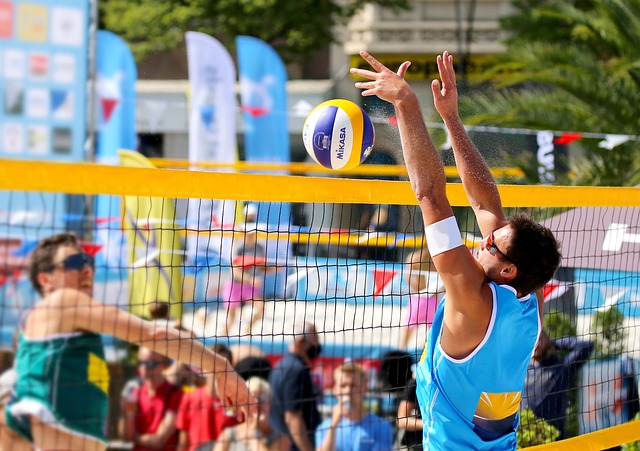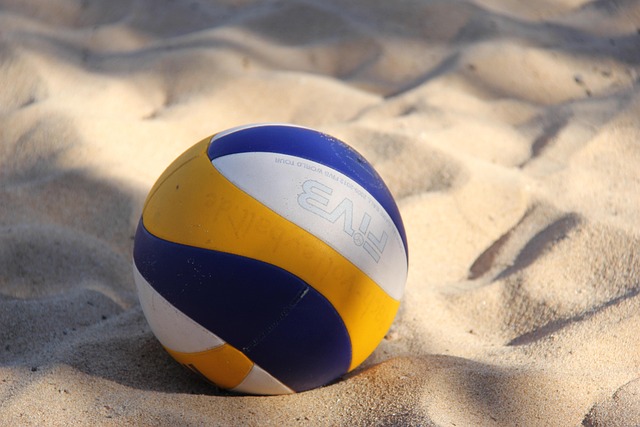The Ducks volleyball team's championship aspirations rest on effective volleyball training methods that focus on fundamentals, teamwork, and mental toughness. Through consistent practice, players master skills like spiking, setting, passing, and defensive positioning, using a mix of drills, exercises, and competitive scenarios. This holistic approach ensures optimal performance under pressure, with coaching and practice driving a championship mindset built on solid foundations. For novices, starting with basic exercises like tosses and catches establishes a robust foundation, progressing to more complex techniques for future performance.
In the quest for championship glory in Ducks volleyball, a multifaceted approach is essential. This article delves into the critical components shaping top-tier performances, from developing fundamental skills through effective volleyball training methods to advanced tactics and strategies. We explore proven techniques for improving team communication, mental toughness, and physical conditioning, while emphasizing injury prevention through tailored strength, agility, and nutrition programs. By mastering these aspects, Ducks volleyball teams can consistently pursue and secure championship titles.
- The Foundation: Developing Basic Volleyball Skills through Training Methods
- – The importance of fundamental skills in volleyball
- – Effective training methods for beginners: drills and exercises
The Foundation: Developing Basic Volleyball Skills through Training Methods

In pursuit of championship glory, Ducks volleyball thrives on a solid foundation built through rigorous and targeted volleyball training methods. These methods focus on instilling fundamental skills, fostering teamwork, and cultivating mental toughness in every player. Through consistent practice, players develop techniques such as setting, spiking, serving, and defensive positioning, laying the groundwork for complex strategies and high-pressure performances.
The effectiveness of these volleyball training methods lies in their ability to cater to individual strengths and weaknesses. Coaches employ a mix of drills, exercises, and competitive scenarios to refine players’ skills, encourage communication, and promote a deep understanding of the game’s nuances. By consistently challenging athletes both physically and mentally, the program ensures that each member of the team contributes optimally as they strive for championship pursuits.
– The importance of fundamental skills in volleyball

In the high-intensity world of Ducks volleyball, where championship pursuits drive every practice and match, mastering fundamental skills is non-negotiable. These aren’t just basic techniques; they form the very backbone of successful volleyball play. Spiking, setting, passing, and digging—each requires precision, timing, and a deep understanding of body mechanics. Effective volleyball training methods focus on refining these fundamentals, ensuring players can execute them under pressure, whether in practice drills or intense tournament games.
Coached with dedication and consistency, fundamental skills translate directly into game-changing moments. Players who spend ample time honing their fundamentals are better equipped to anticipate plays, make split-second decisions, and contribute consistently to their team’s success. It’s through rigorous volleyball training methods that the Ducks cultivate a championship mindset, where every player understands that exceptional performances stem from solid, unyielding foundations.
– Effective training methods for beginners: drills and exercises

For beginners in volleyball, effective training methods are essential to build a strong foundation. Drills should focus on fundamental skills like passing, setting, and spiking. Simple exercises involving controlled movements, such as tosses and catches, help players develop hand-eye coordination. Starting with low-impact drills allows athletes to familiarize themselves with the ball’s trajectory and learn proper technique without risking injury.
Progressing from basic drills, beginners can transition to more complex exercises that simulate game scenarios. These could include setting up defensive positions, practicing quick sets for attackers, or incorporating blocking techniques. Regular repetition of these volleyball training methods fosters muscle memory, ensuring players can execute skills instinctively during actual matches.






